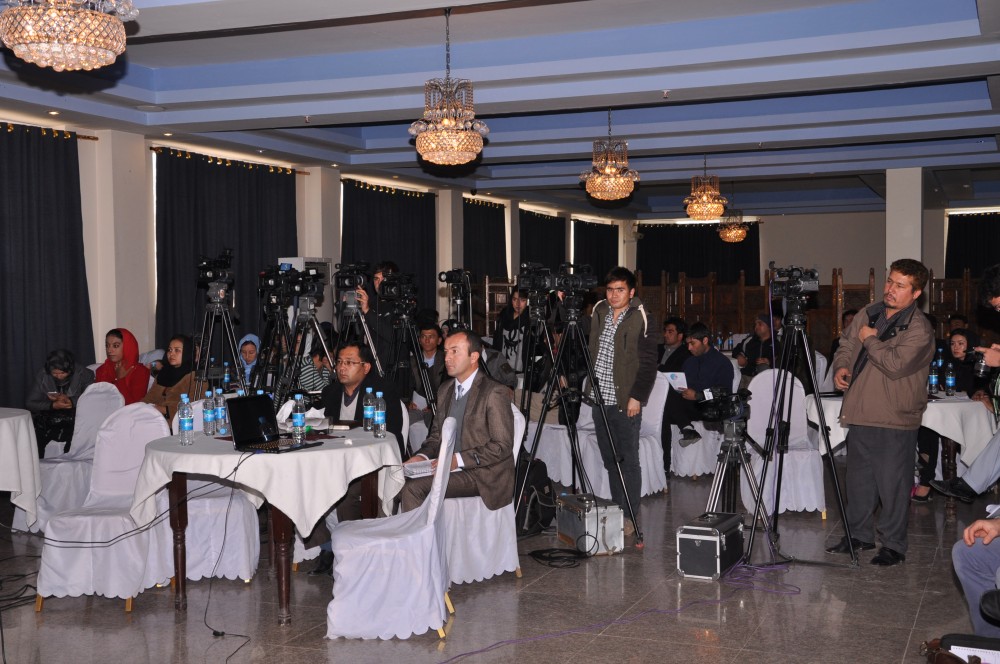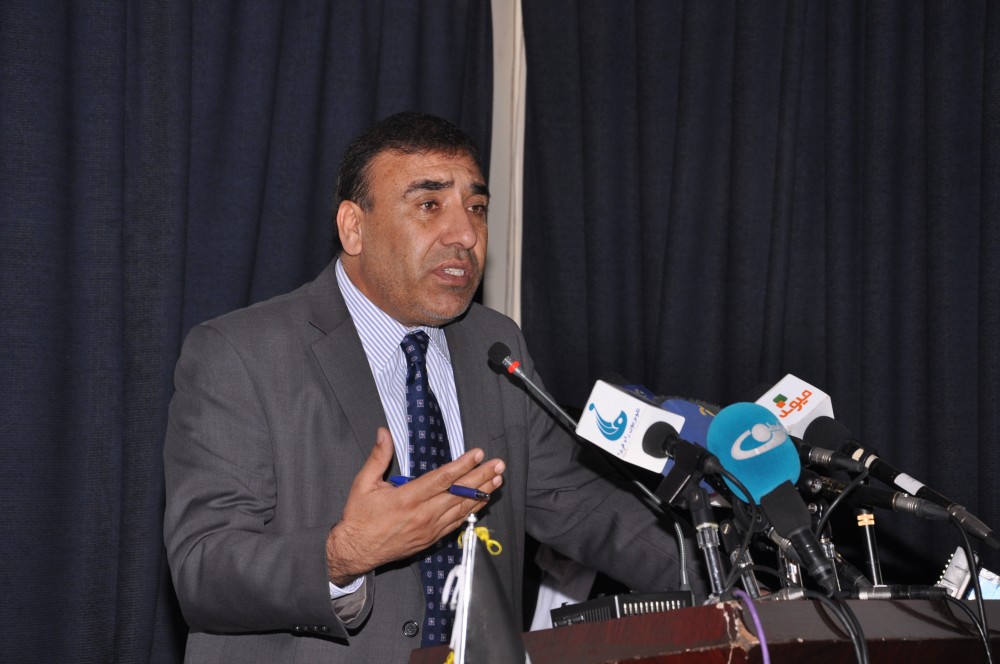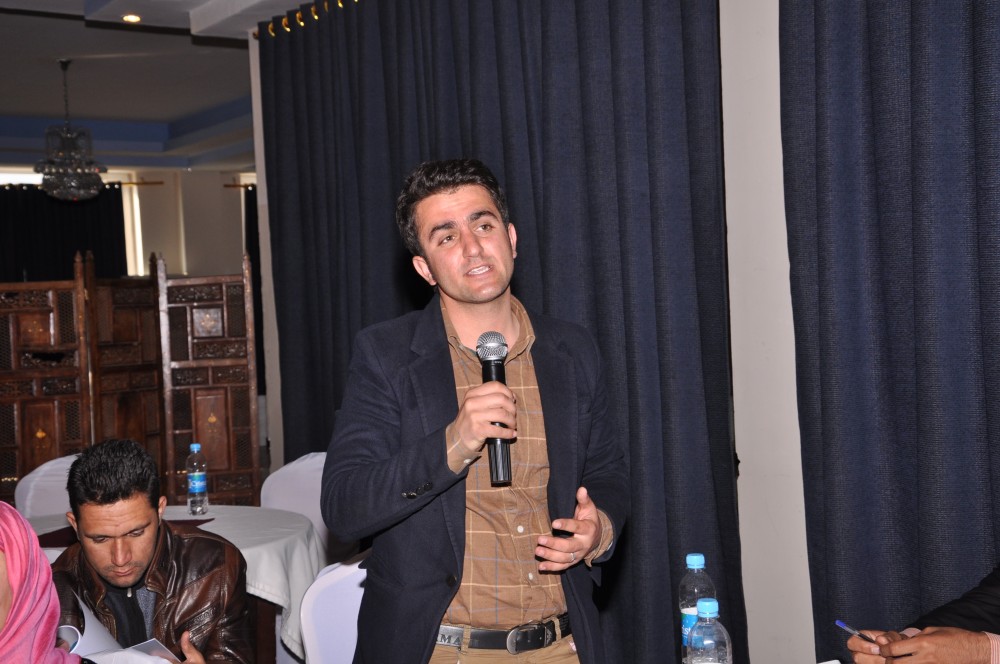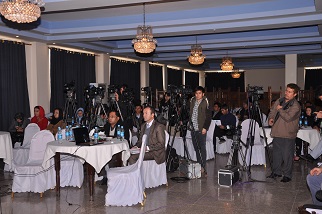 Through the Afghans’ Coalition for Transparency and Accountability (ACTA) platform, EPD launched its Independent Review of the Afghanistan 1394 Draft National Budget on Thursday November 27. The report has been published on our website in English, Dari and Pashto.
Through the Afghans’ Coalition for Transparency and Accountability (ACTA) platform, EPD launched its Independent Review of the Afghanistan 1394 Draft National Budget on Thursday November 27. The report has been published on our website in English, Dari and Pashto.
This comes at a crucial time for Afghanistan as a new cabinet will soon be installed that has to deliver on the promises made during the Presidential campaigns, as the London Conference on Afghanistan is about to commence to discuss the government’s and international community’s commitments for the Transformation Decade, and as the national budget is currently being reviewed by the Parliament. .
The Country Director for USIP, Mr. Shahmahmood Miakhel, EPD’s Executive Director, Ms. Nargis Nehan, and the ACTA Coordinator, Mr. Edrees Omarzad, were the panelists at the launch. The launching event was attended by civil society actors, youth and national and international media.
 Ms. Nehan explained that the report was developed with the aim of providing a snapshot of the 1394 draft national budget from a civil society perspective to provide further details to the Parliament to review the national budget and to present a simple review of the budget so that civil society and citizens can understand the budget and what it means for their daily lives.
Ms. Nehan explained that the report was developed with the aim of providing a snapshot of the 1394 draft national budget from a civil society perspective to provide further details to the Parliament to review the national budget and to present a simple review of the budget so that civil society and citizens can understand the budget and what it means for their daily lives.
The second speaker, Mr. Miakhel, emphasized that providing a civil society perspective on the national budget is crucial as it can improve government transparency and hold the government accountable, which was underscored through comments made by members of the audience.
The report, besides providing a snapshot of the 1394 draft national budget, also focuses on the key indicators of fiscal sustainability, public finance management and budget reforms. The first part provides a brief overview of estimated resources, budget allocations of the 1394 draft national budget and a comparison with the 1393 national budget.
 The second part reviews the fiscal sustainability of the national budget, discussing key issues with regards to domestic revenues, operation and maintenance (O&M), budget execution, and donor assistance and discretionary authority.
The second part reviews the fiscal sustainability of the national budget, discussing key issues with regards to domestic revenues, operation and maintenance (O&M), budget execution, and donor assistance and discretionary authority.
The third part assesses the progress made in public financial management reforms in the areas of transparency and accountability, monitoring and evaluation, provincial budgeting, results-based program budgeting, gender-responsive budgeting, and civil society involvement in the budget process.
Case studies of the education and public health sectors are provided at the end of the report to assess the government’s ability to meet its policy commitments and address the local populations’ needs. The report ends with providing recommendations for the government, international community and civil society.
Maurits Rade can be contacted for queries in English (maurits.rade@epd-afg.org, +93(0)788756943) and Edrees Omarzad can be contacted for queries in Dari and Pashto (edrees.omarzad@gmail.com, +93(0)795688378).

